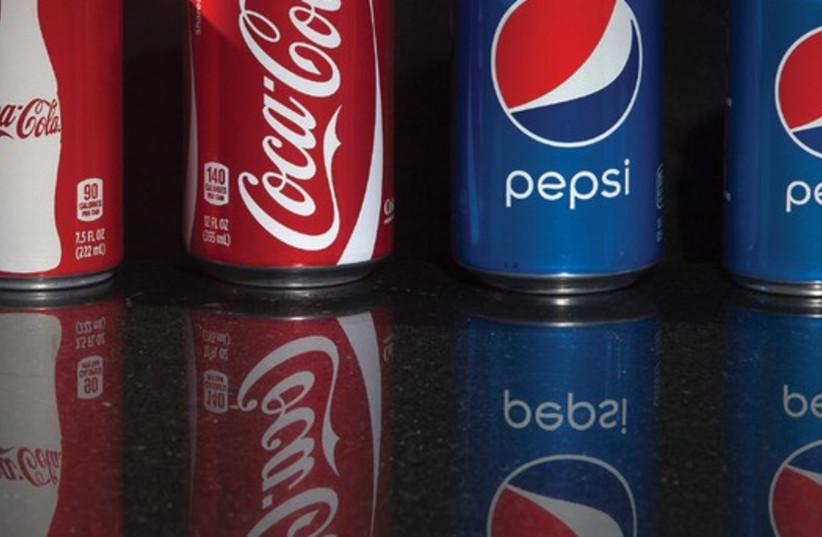McDonald’s, Starbucks, Pepsi and Coca-Cola have suspended their primary operations in Russia in response to Moscow’s invasion of Ukraine, according to a series of independent statements released by the companies late Tuesday night.
No-fry zone: Economic impact in Russia
While American and European politicians are debating a no-fly zone over Ukraine, McDonald’s has instituted a “no-fry zone” in Russia – and the Russian economy won’t be lovin’ it.
“The conflict in Ukraine and the humanitarian crisis in Europe has caused unspeakable suffering to innocent people,” McDonald’s CEO Chris Kempczinski said in an email that was originally sent to employees and franchisees. “McDonald’s has decided to temporarily close all our restaurants in Russia and pause all operations in the market.”
According to the American multinational company, which has been operating in Russia for more than 30 years, the fast-food chain employs 62,000 people in Russia, works with hundreds of local suppliers, and serves millions of Russian citizens in 850 communities.
“You know, it’s not just McDonald’s leaving Russia. Our life is gone... and now I don’t know what to do, how to live. No, not without McDonald’s, without hope,” Russian Foreign Ministry spokeswoman Maria Zakharova joked in response, according to the Russia Today television network.

Pepsi’s suspension of operations won’t be what Russian President Vladimir Putin likes, either. The soft drink company will halt the sale of its flagship Pepsi-Cola beverage, as well as its other drinks such as 7-Up and Mirinda. There are about 20,000 associates and 40,000 agricultural workers who rely on Pepsi’s business in Russia.
“Pepsi-Cola entered the market at the height of the Cold War and helped create common ground between the United States and the Soviet Union,” PepsiCo CEO Ramon Laguarta said in an email to associates. “However, given the horrific events occurring in Ukraine, we are announcing the suspension of the sale of Pepsi-Cola.... We will also be suspending capital investments and all advertising and promotional activities in Russia.”
Starbucks, which also suspended business operations, has 2,000 partners and 130 stores in Russia.
“We continue to watch the tragic events unfold and, today, we have decided to suspend all business activity in Russia, including shipment of all Starbucks products,” CEO Kevin Johnson said in a statement to partners.
Coca-Cola put out a simpler statement, only saying, “The Coca-Cola Company announced today that it is suspending its business in Russia. Our hearts are with the people who are enduring unconscionable effects from these tragic events in Ukraine.”
Sanctioning Russia, not employees
McDonald’s, Starbucks and PepsiCo, while discontinuing business in Russia, assured in their statements that they will continue to provide support for their employees in the warring state.
“Our number-one priority from the start of this crisis has been, and will remain, our people,” said Kempczinski.
“We understand the impact this will have on our Russian colleagues and partners, which is why we are prepared to support all three legs of the stool in Ukraine and Russia. This includes salary continuation for all McDonald’s employees in Russia.”
McDonald’s also noted that it would continue to “pay full salaries for our Ukrainian employees.”
Starbucks said it would “provide support” for its partners, but did not detail if that would entail financial compensation.
PepsiCo stressed that it will continue to sell essential products such as “milk and other dairy offerings, baby formula and baby food. By continuing to operate, we will also continue to support the livelihoods” of those that rely on PepsiCo for a living.
Humanitarian aid
Some of the sanctioning food companies noted that they would be continuing humanitarian efforts in connection to the war.
McDonald’s noted that it had “donated $5 million to our Employee Assistance Fund” in Ukraine, and was supporting International Red Cross relief efforts in the region. The Ronald McDonald House Charities, which provide accommodations for families with children staying in hospitals and other medical support activities, will continue operating in Poland, Latvia and Ukraine, and will continue to provide services in Russia.
Prior to suspending operations in Russia, Starbucks since Friday had been sending royalties from business in Russia to humanitarian efforts in neighboring Ukraine. It also announced on Friday that it had donated $500,000 to World Central Kitchen and the Red Cross for their work in Ukraine.
Growing sanctions
McDonald’s, Starbucks, Pepsi and Coca-Cola join a growing list of private and public sector sanctions against Russia.
According to metrics from sanctions-tracking database Castellum.ai, Russia has become the most economically sanctioned country in the world, surpassing North Korea and Iran. The country had 5,532 economic measures imposed against it as of early Tuesday, some 2,778 of which are new sanctions that were leveled in the wake of its invasion of Ukraine.
Aaron Reich contributed to this report.
